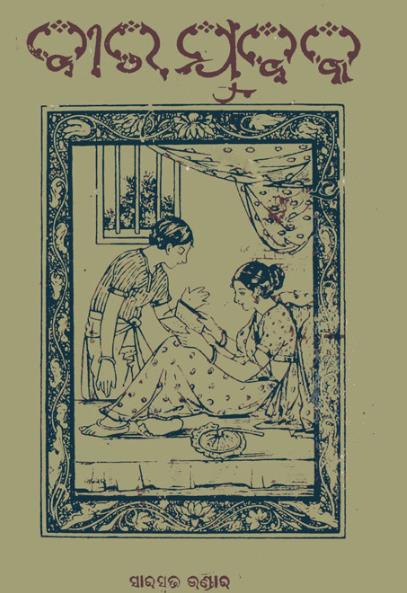Published in 1930, Bira Jubaka by Yaubana Yatri stands as a significant contribution to Odia literature and showcases the vibrant cultural tapestry of Odisha during a transformative era. Delving into themes of youth, courage, and cultural identity, this novel not only captivates readers with its compelling narrative but also serves as a mirror reflecting the societal changes of the time.
The story revolves around the titular character, Bira, a spirited young man who embodies the aspirations and struggles of the youth in the early 20th century Odisha. At a time when India was under colonial rule, Bira represents a new wave of hope and determination amongst the youth, eager to break free from the shackles of tradition and embrace modernity. Throughout the novel, Yaubana Yatri intricately weaves Bira’s personal journey with the larger historical context of Odisha, exploring how the socio-political landscape influences individual lives.
The narrative arc of Bira Jubaka takes the reader through Bira’s challenges and triumphs, showcasing his relationships with friends and family. Yaubana Yatri skillfully portrays the dynamics of Bira’s interactions, highlighting the importance of community and solidarity. The dialects and expressions used in the dialogues add authenticity and depth to the characters, making them relatable and engaging for readers. Bira’s relationships are tested against the backdrop of societal expectations, familial obligations, and the emerging spirit of nationalism.
One of the novel’s most striking features is its exploration of various facets of Odia culture. From folk traditions to rituals, Yaubana Yatri immerses the reader in the rich cultural heritage of Odisha. The descriptions of local customs, festivals, and landscapes bring the setting to life, ensuring that readers feel a profound connection to the region. This cultural exploration not only enriches the narrative but also serves as a celebration of Odia identity.
Moreover, the novel reflects the changing perceptions of gender roles in society. Bira’s interactions with female characters highlight the evolving status of women during this period. As he navigates his relationships with strong, independent women, readers are introduced to themes of empowerment and equality—a reflection of the progressive thoughts brewing in society at the time.
Yaubana Yatri’s writing style in Bira Jubaka is both lyrical and evocative. His use of rich imagery and emotional depth allows readers to experience the protagonist’s internal conflicts and aspirations. The novel manages to strike a balance between a gripping plot and profound philosophical inquiries, making it not just a story of individual growth, but also a commentary on the societal metamorphosis occurring in Odisha.
Bira Jubaka has left a lasting impact on Odia literature and continues to resonate with readers today. It serves as an inspiration for contemporary writers, encouraging them to explore the complexities of the human experience within the framework of cultural and historical realities. As a sub-novel that captures the essence of its time, Bira Jubaka remains a timeless classic, inviting readers to reflect on the ideals of youth and the transformative power of literature. Through Bira’s journey, Yaubana Yatri reminds us that the struggles of the past continue to echo in our present, urging us to confront our own identities with courage and conviction.
Books Info
| Books name | Bira Jubaka / ବୀର ଯୁବକ |
| Author | Yaubana Yatr |
| No Of pages | 138 |
| Publisher | Saraswata Bhandara |
| Publication | 1930 |
| Printed At | Saraswata Press |
| Distributor | NA |

